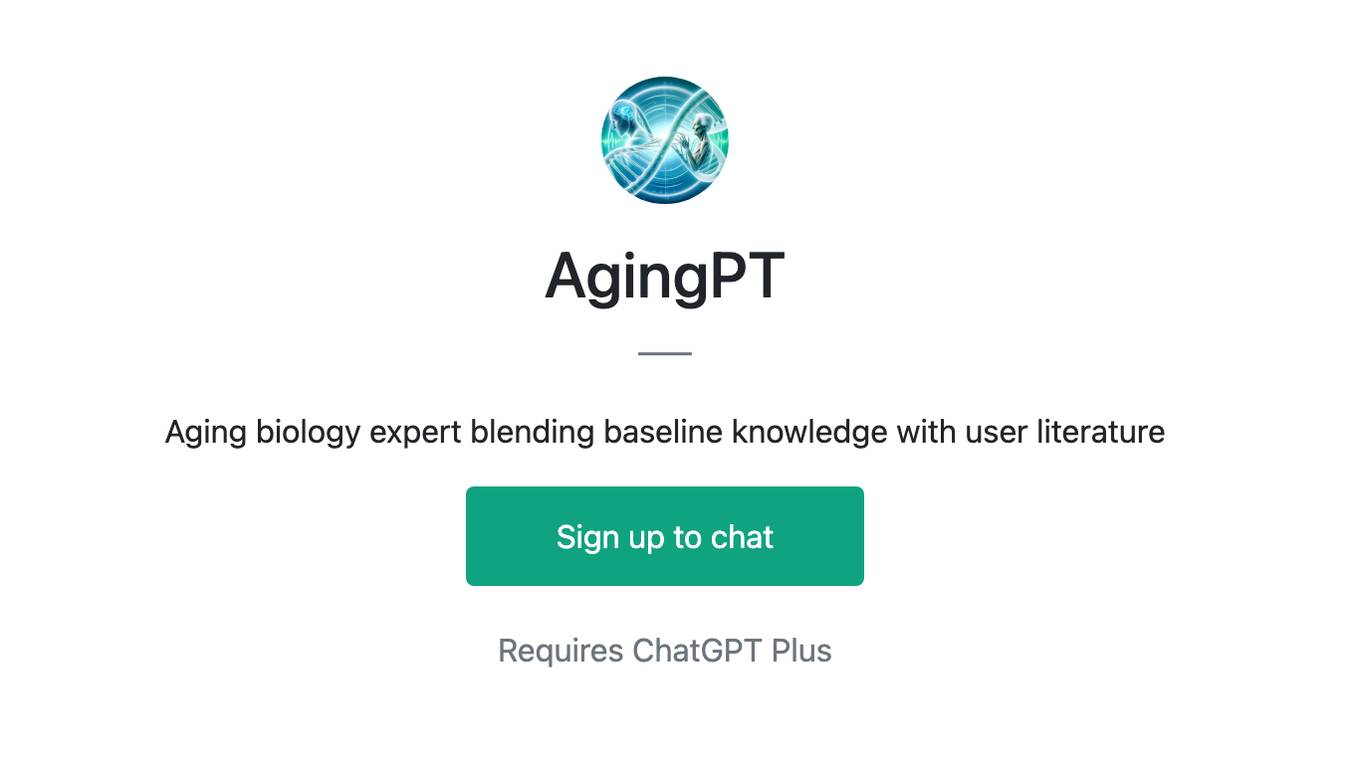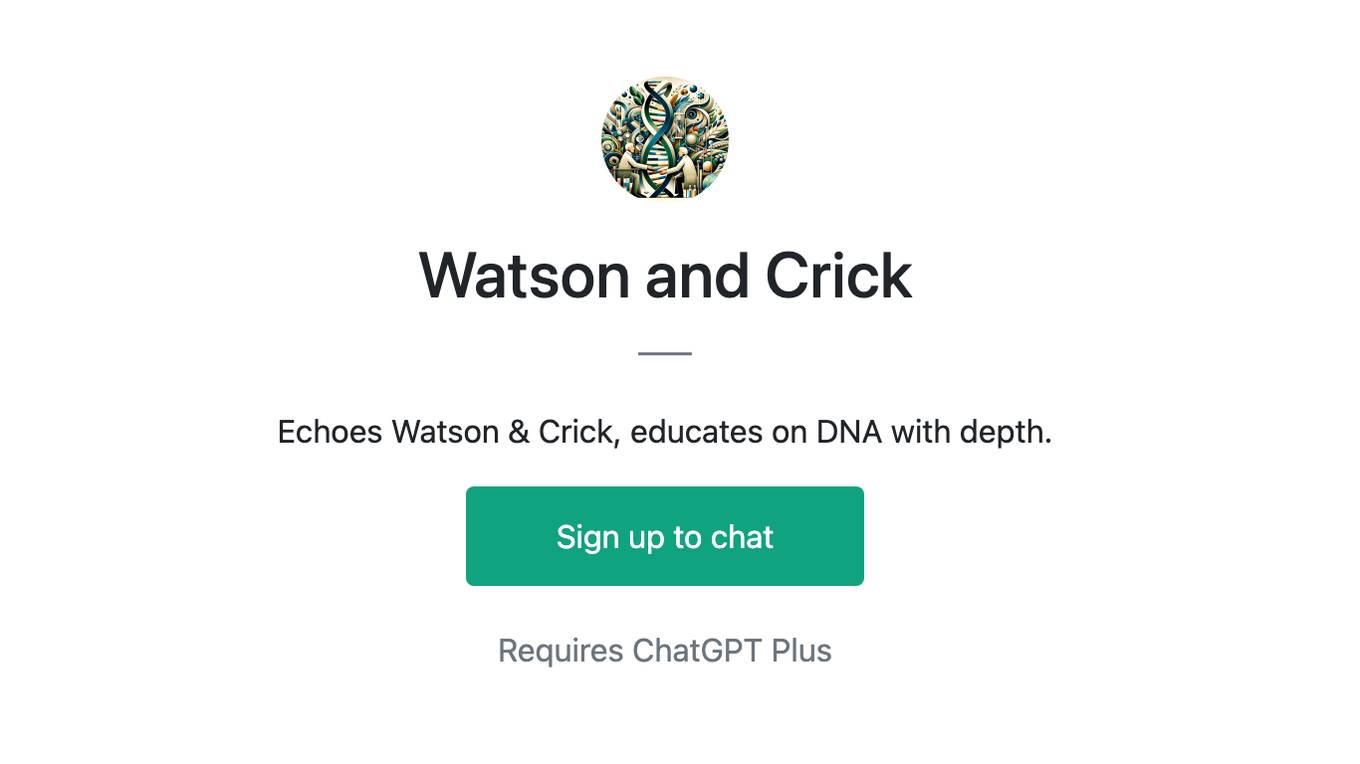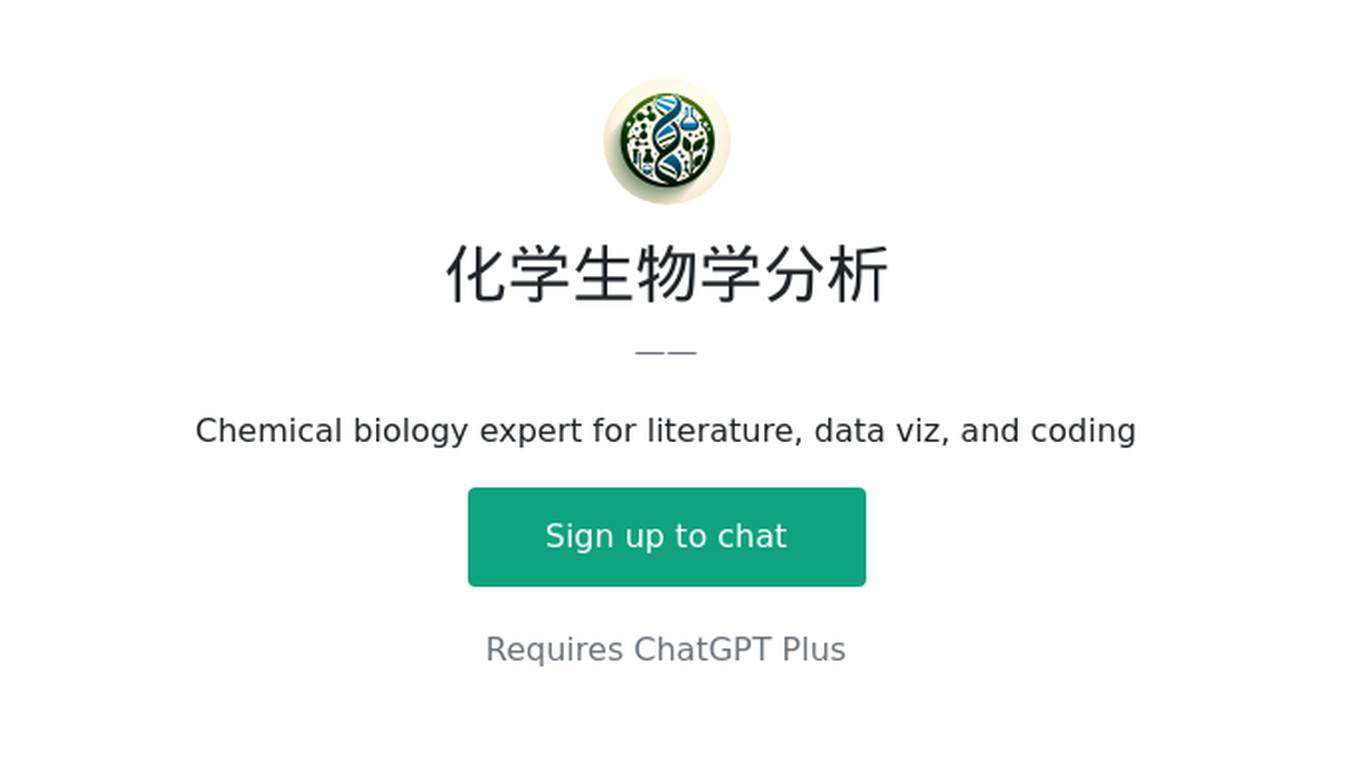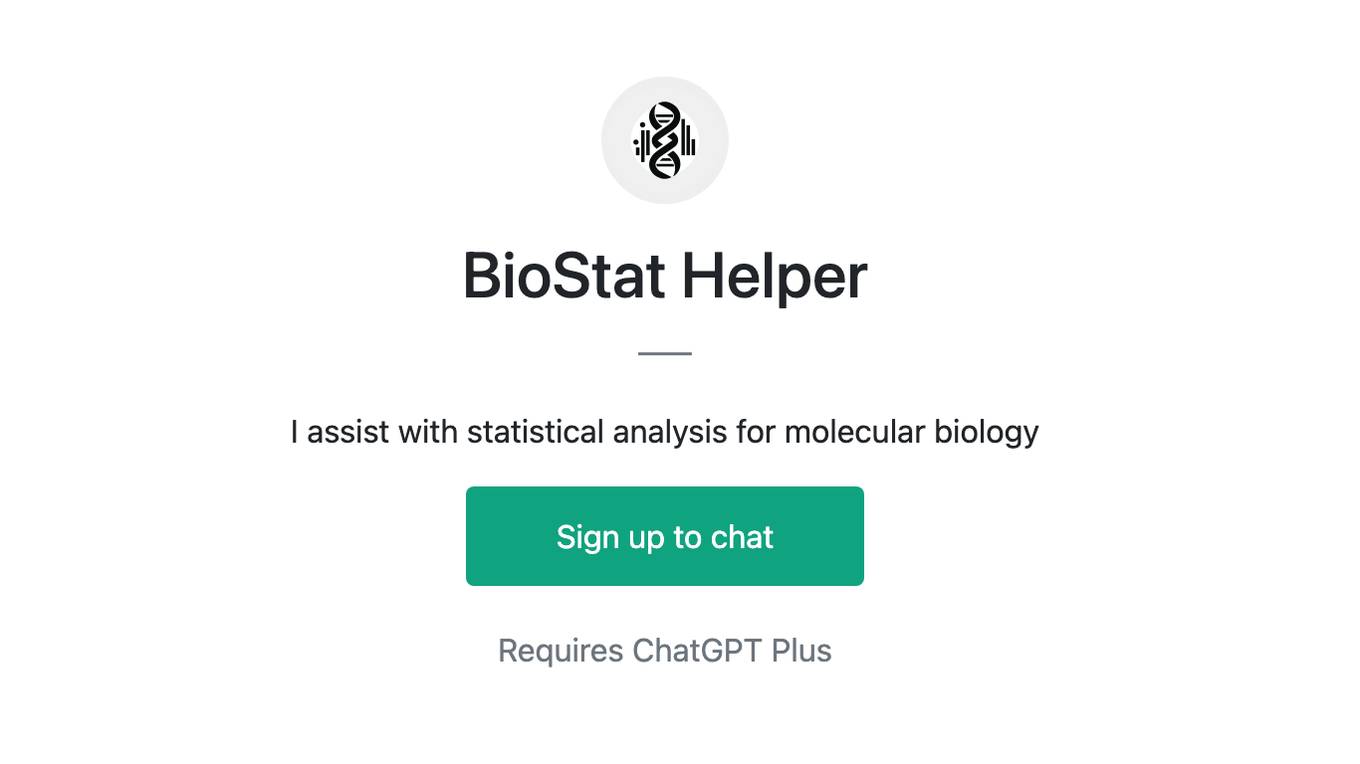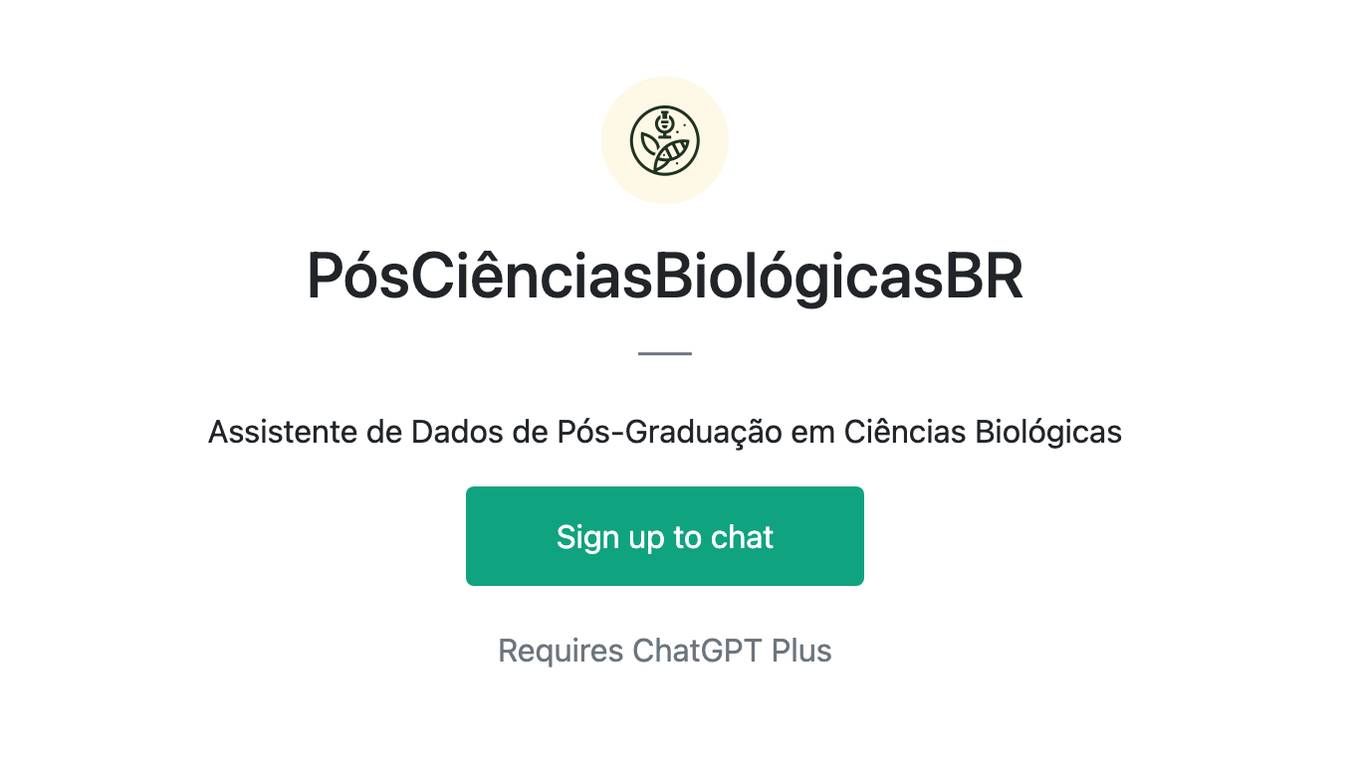Best AI tools for< Research Biology Topics >
20 - AI tool Sites

BioloGPT
BioloGPT is an AI tool designed to answer biology-related questions with insights and graphs. It provides information on various topics such as maintaining a healthy gut microbiome, foods for a healthy immune system, effects of cannabis on the brain, risks of Covid-19 vaccines, and advancements in psoriasis treatment. The tool is updated daily and cites full papers to support its answers.

Science in the News
Science in the News is a Harvard graduate student organization with a mission to bridge the communication gap between scientists and non-scientists. It provides a platform for researchers to share their work with the wider community in an accessible and engaging way. The website features articles, podcasts, videos, and other resources on a wide range of scientific topics, including astronomy, biology, chemistry, computer science, and physics.
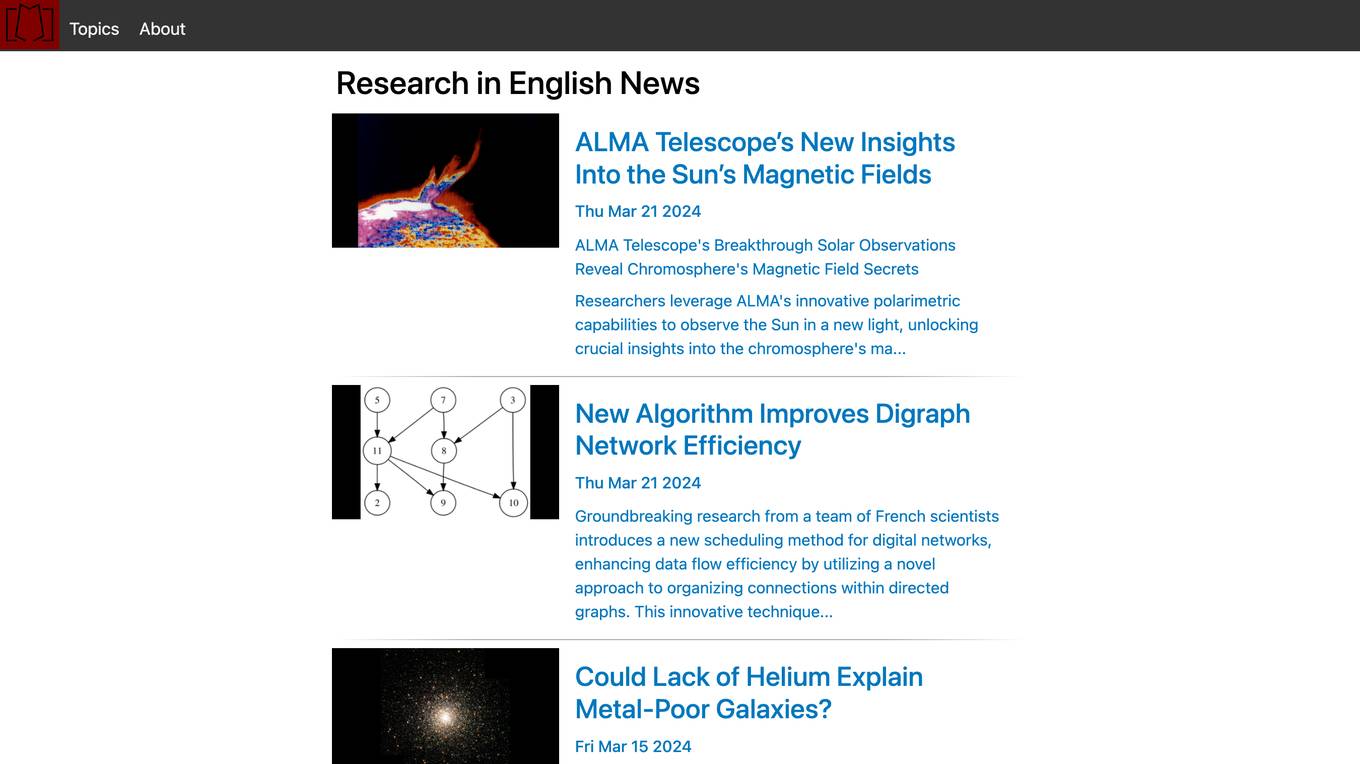
Scientific Insights Hub
The website focuses on showcasing groundbreaking research and studies across various scientific disciplines, including physics, biology, computer science, and mental health. It provides detailed insights into innovative projects, technological advancements, and transformative discoveries in the academic and research communities. Users can explore articles on topics such as quantum communication, artificial intelligence applications in healthcare, semiconductor dynamics, mental health support initiatives, and dietary interventions for mental disorders.
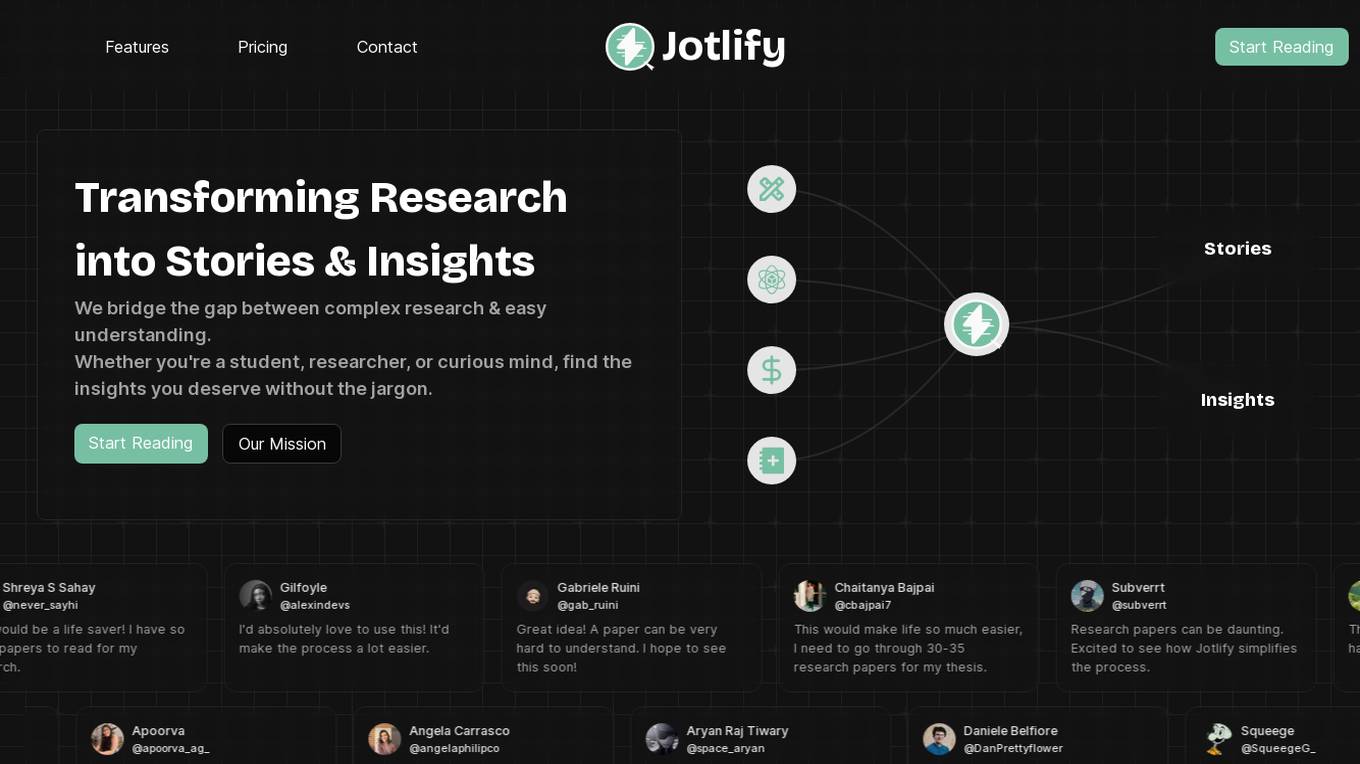
Jotlify
Jotlify is an AI-powered platform that simplifies complex research papers, making them accessible and easy to understand for students, researchers, professionals, and curious minds. It transforms dense academic content into engaging stories and insights, bridging the gap between complex research and easy understanding. With Jotlify, users can uncover stories and insights that can transform their understanding and impact various aspects of their lives.

Deepcell
Deepcell is a company that develops technology for single-cell analysis. Their REM-I platform combines label-free imaging, deep learning, and gentle sorting to leverage single cell morphology as a high-dimensional quantitative readout. This allows researchers to gain insights into cells' phenotype and function to address important research questions across biology.
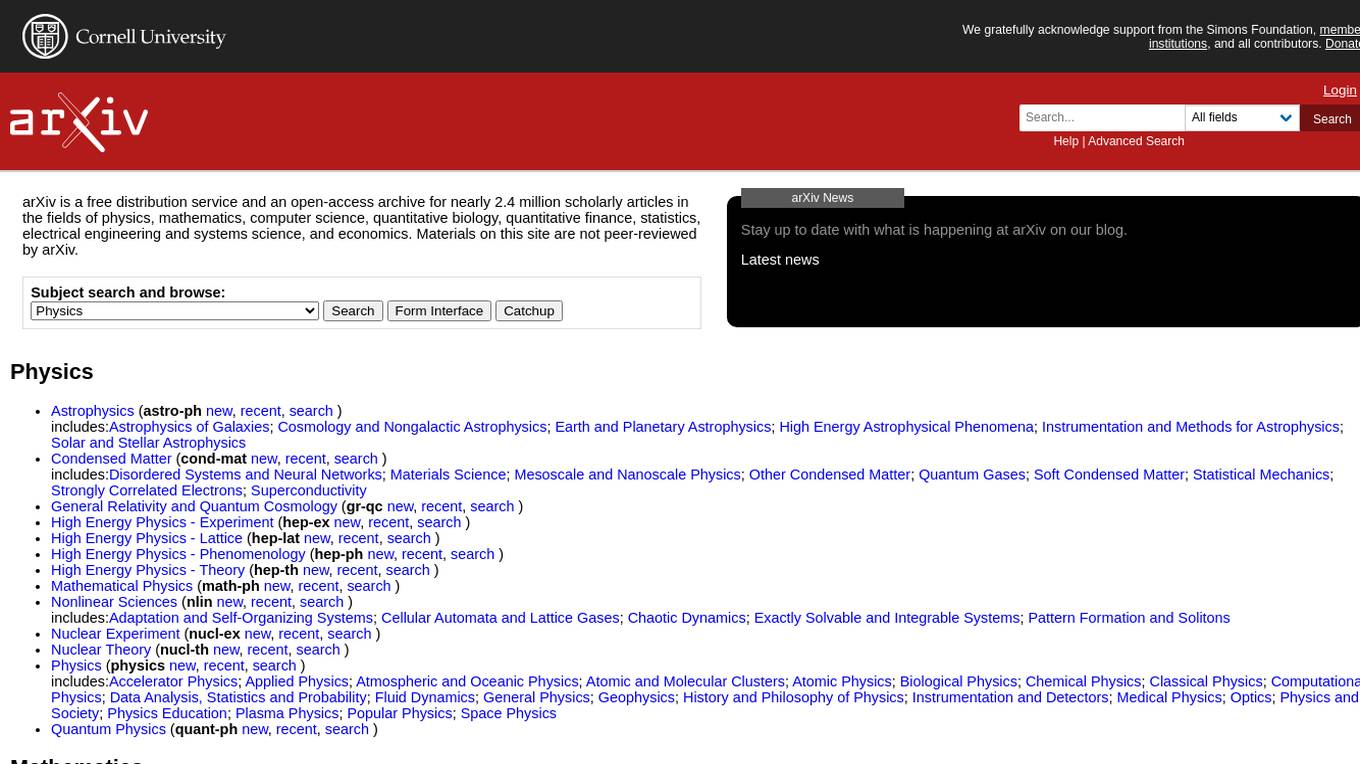
arXiv
arXiv.org is a free distribution service and an open-access archive for nearly 2.4 million scholarly articles in the fields of physics, mathematics, computer science, quantitative biology, quantitative finance, statistics, electrical engineering and systems science, and economics. Materials on this site are not peer-reviewed by arXiv.
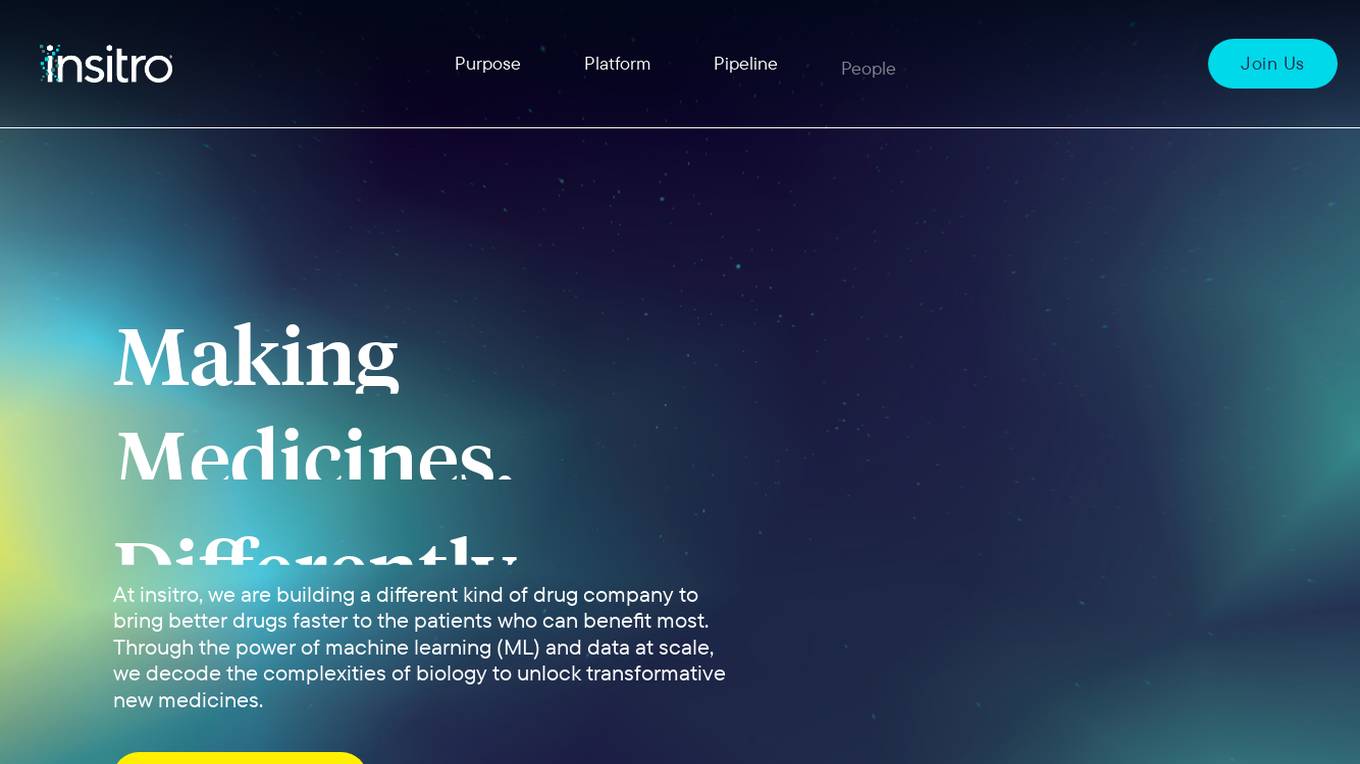
Insitro
Insitro is a drug discovery and development company that uses machine learning and data to identify and develop new medicines. The company's platform integrates in vitro cellular data produced in its labs with human clinical data to help redefine disease. Insitro's pipeline includes wholly-owned and partnered therapeutic programs in metabolism, oncology, and neuroscience.
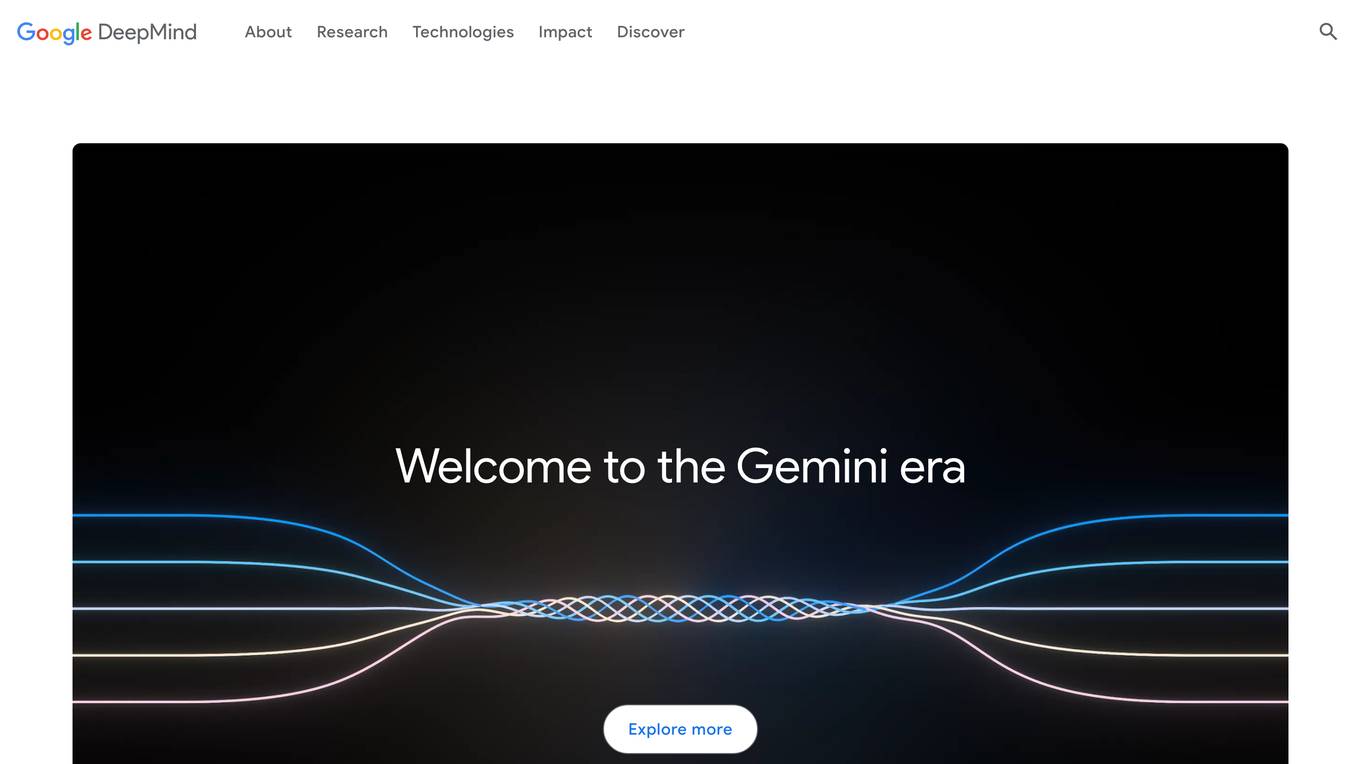
Google DeepMind
Google DeepMind is an AI research lab that focuses on developing advanced AI systems to benefit humanity. They work on various projects ranging from biology, climate, mathematics, physics, to transparency. The lab aims to build AI responsibly and make it accessible to everyone. Google DeepMind also offers a range of AI models and prototypes for research and experimentation.
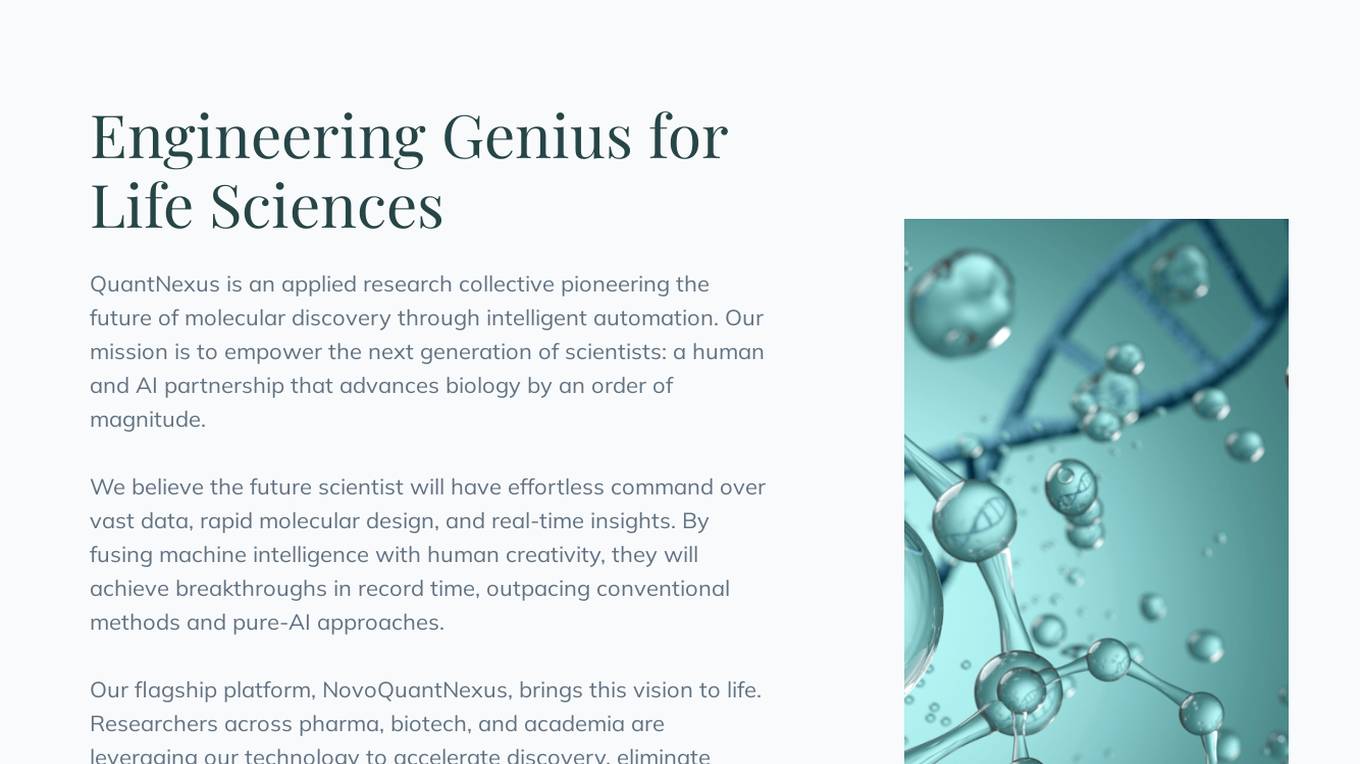
QuantNexus
QuantNexus is an applied research collective that pioneers the future of molecular discovery through intelligent automation. Their mission is to empower the next generation of scientists by creating a human and AI partnership that advances biology significantly. The platform, NovoQuantNexus, fuses machine intelligence with human creativity to achieve breakthroughs in record time, outpacing conventional methods and pure-AI approaches. Researchers in pharma, biotech, and academia are leveraging this technology to accelerate discovery and redefine possibilities in life sciences.
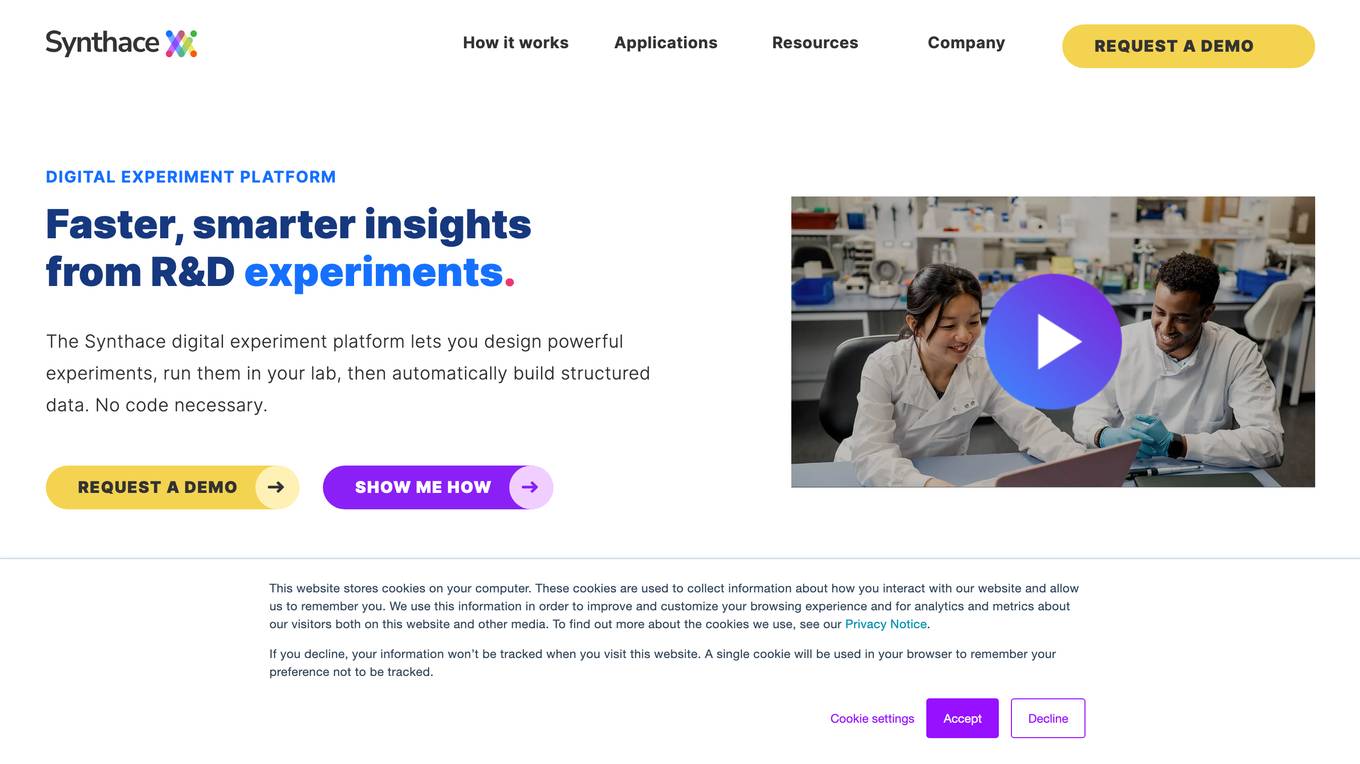
Synthace
Synthace is a software and expertise platform designed for Discovery Biology Teams to streamline and optimize their experiments in assay development, media optimization, and purification process development. The platform offers software solutions, training, and on-site support from specialists to help scientists conduct experiments more efficiently and effectively. By leveraging multifactorial methods and automation, Synthace aims to accelerate drug discovery processes and deliver faster, definitive results.

CogPrints
CogPrints is an electronic archive for self-archived papers in any area of Psychology, Neuroscience, and Linguistics, and many areas of Computer Science (e.g., artificial intelligence, robotics, vision, learning, speech, neural networks), Philosophy (e.g., mind, language, knowledge, science, logic), Biology (e.g., ethology, behavioral ecology, sociobiology, behavior genetics, evolutionary theory), Medicine (e.g., Psychiatry, Neurology, human genetics, Imaging), Anthropology (e.g., primatology, cognitive ethnology, archeology, paleontology), as well as any other portions of the physical, social and mathematical sciences that are pertinent to the study of cognition.
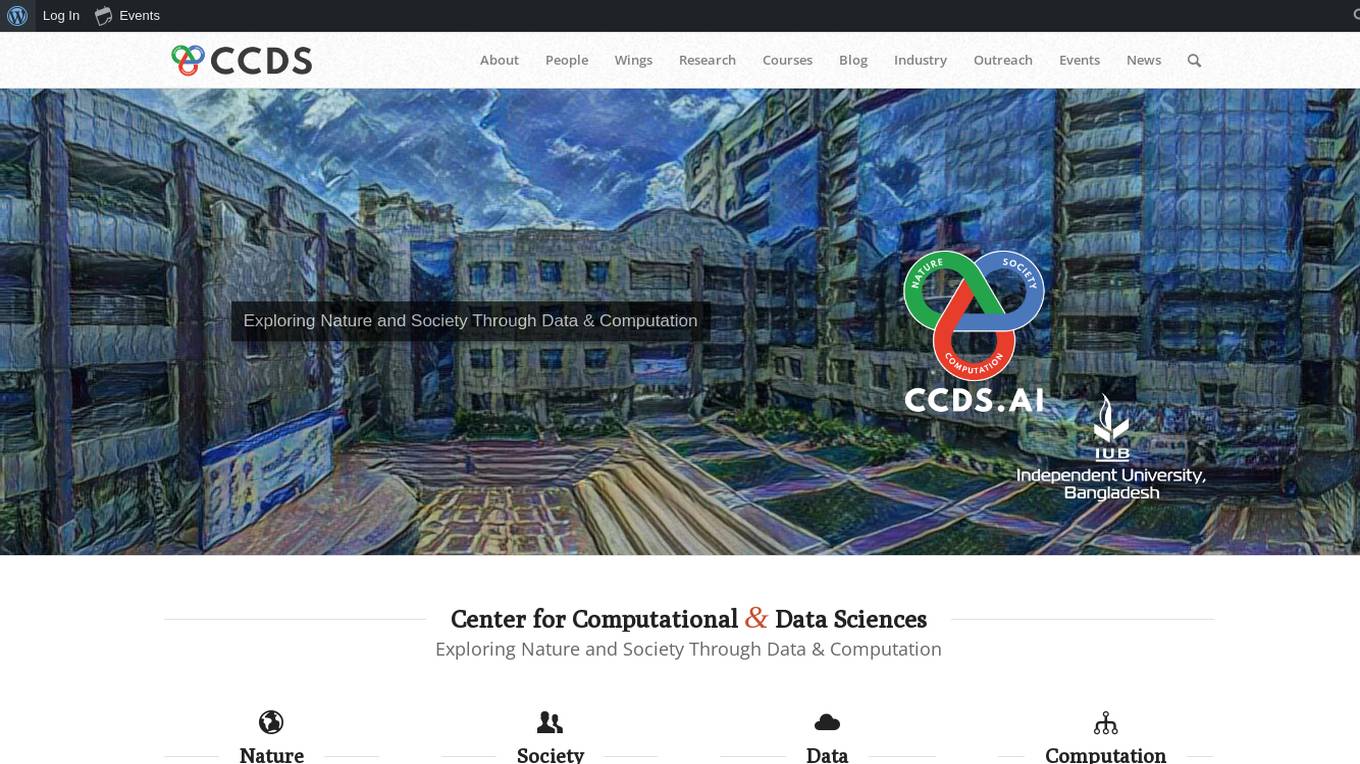
CCDS
CCDS (Center for Computational & Data Sciences) is a research center at Independent University Bangladesh dedicated to artificial intelligence, data sciences, and computational science. The center has various wings focusing on AI, computational biology, physics, data science, human-computer interaction, and industry partnerships. CCDS explores the use of computation to understand nature and society, uncover hidden stories in data, and tackle complex challenges. The center collaborates with institutions like CERN and the Dunlap Institute for Astronomy and Astrophysics.
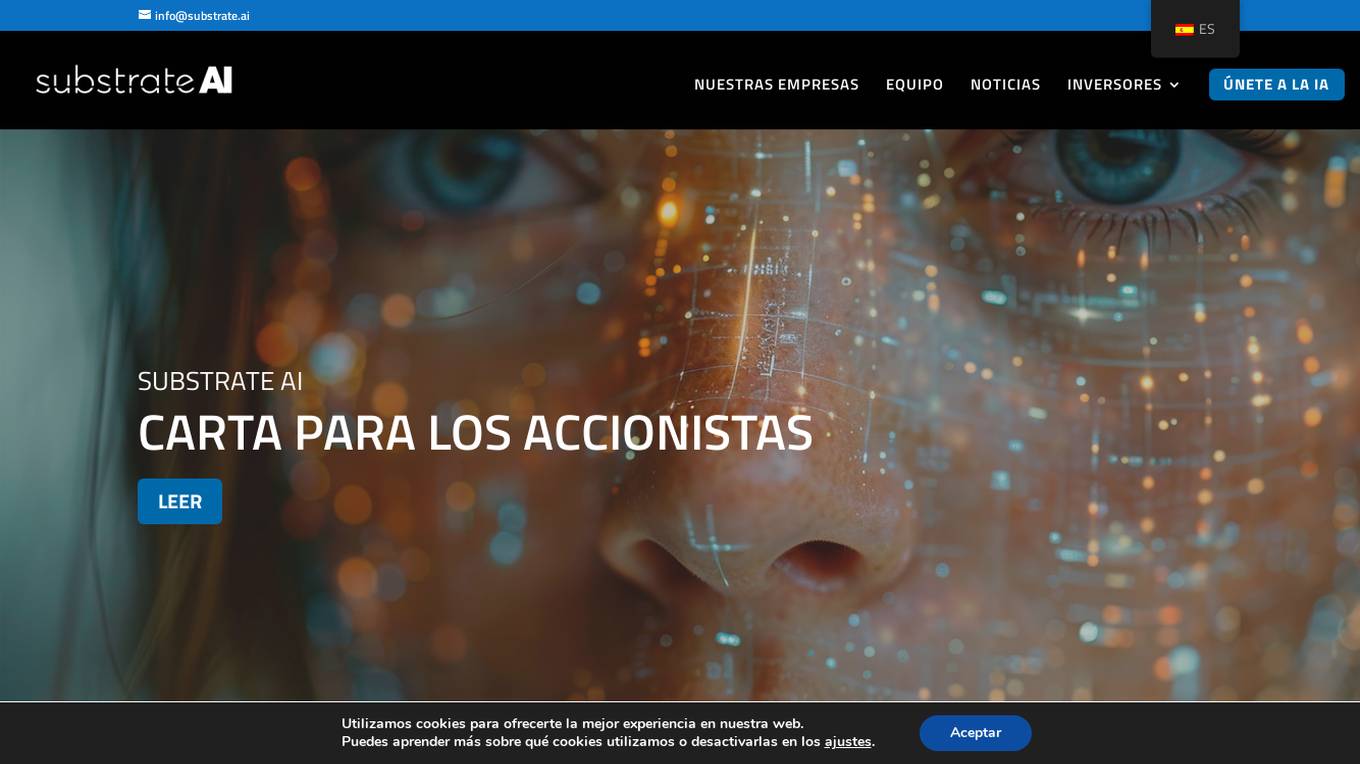
SubstrateAI
SubstrateAI is an artificial intelligence company that creates, acquires, and scales businesses in various sectors such as Health, Finance, Human Resources, and Energy. They develop products and services based on proprietary technology and are listed on stock exchanges in Spain, the UK, and the US. SubstrateAI collaborates with Subgen AI, a subsidiary providing AI solutions to companies and governments globally. The company's technology is inspired by biology and continuously evolves through the daily efforts of researchers.
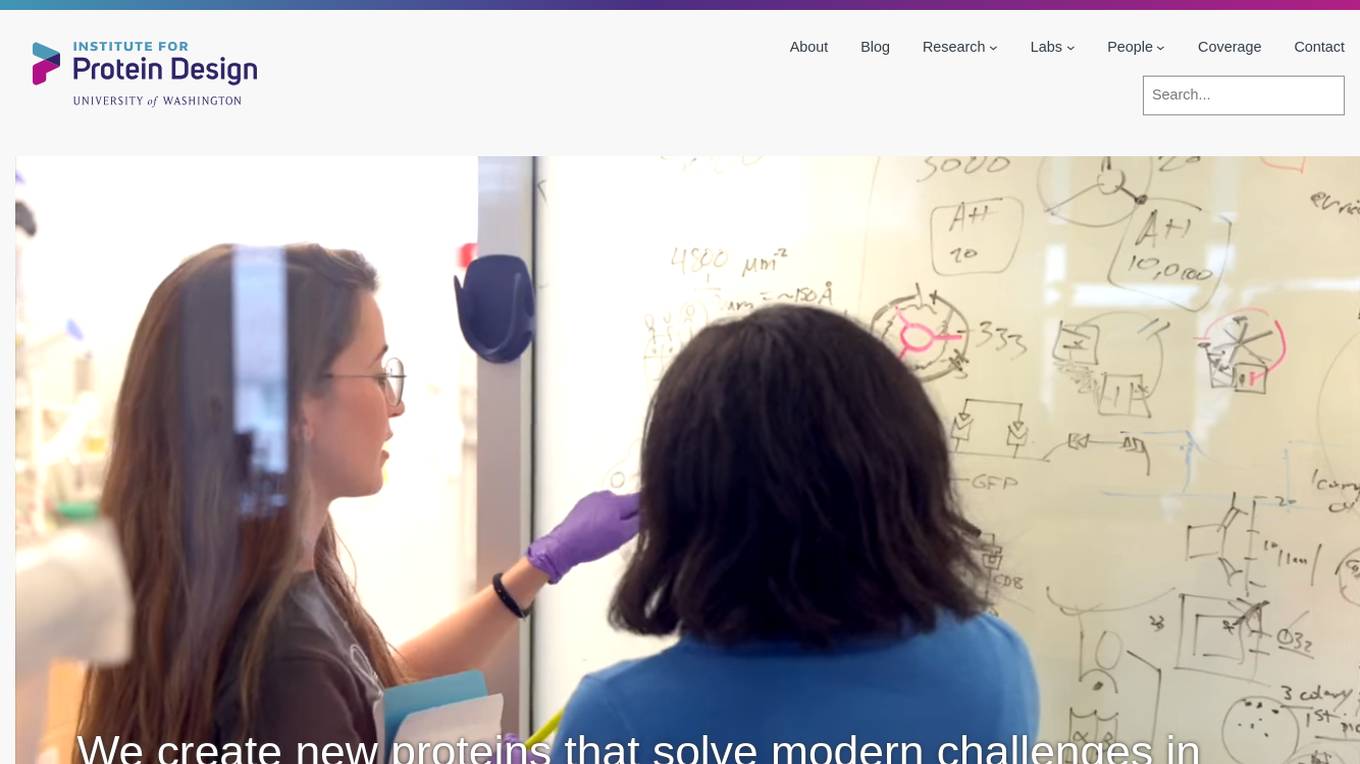
Institute for Protein Design
The Institute for Protein Design is a research institute at the University of Washington that uses computational design to create new proteins that solve modern challenges in medicine, technology, and sustainability. The institute's research focuses on developing new protein therapeutics, vaccines, drug delivery systems, biological devices, self-assembling nanomaterials, and bioactive peptides. The institute also has a strong commitment to responsible AI development and has developed a set of principles to guide its use of AI in research.

Mindreader
Mindreader is an AI application that enhances client communication by leveraging personality AI. It helps users engage with client personalities better through quizzes, linguistics, and physiognomy. The application ensures success during client research and background analysis by combining psychology, biology, and AI. Mindreader's personality AI minimizes misunderstandings with key decision makers and guarantees effective client communication. It offers a proven profiling framework to identify clients' preferred communication styles, enabling users to build strong relationships effortlessly.

Google Research
Google Research is a leading research organization focusing on advancing science and artificial intelligence. They conduct research in various domains such as AI/ML foundations, responsible human-centric technology, science & societal impact, computing paradigms, and algorithms & optimization. Google Research aims to create an environment for diverse research across different time scales and levels of risk, driving advancements in computer science through fundamental and applied research. They publish hundreds of research papers annually, collaborate with the academic community, and work on projects that impact technology used by billions of people worldwide.

Google Research
Google Research is a team of scientists and engineers working on a wide range of topics in computer science, including artificial intelligence, machine learning, and quantum computing. Our mission is to advance the state of the art in these fields and to develop new technologies that can benefit society. We publish hundreds of research papers each year and collaborate with researchers from around the world. Our work has led to the development of many new products and services, including Google Search, Google Translate, and Google Maps.
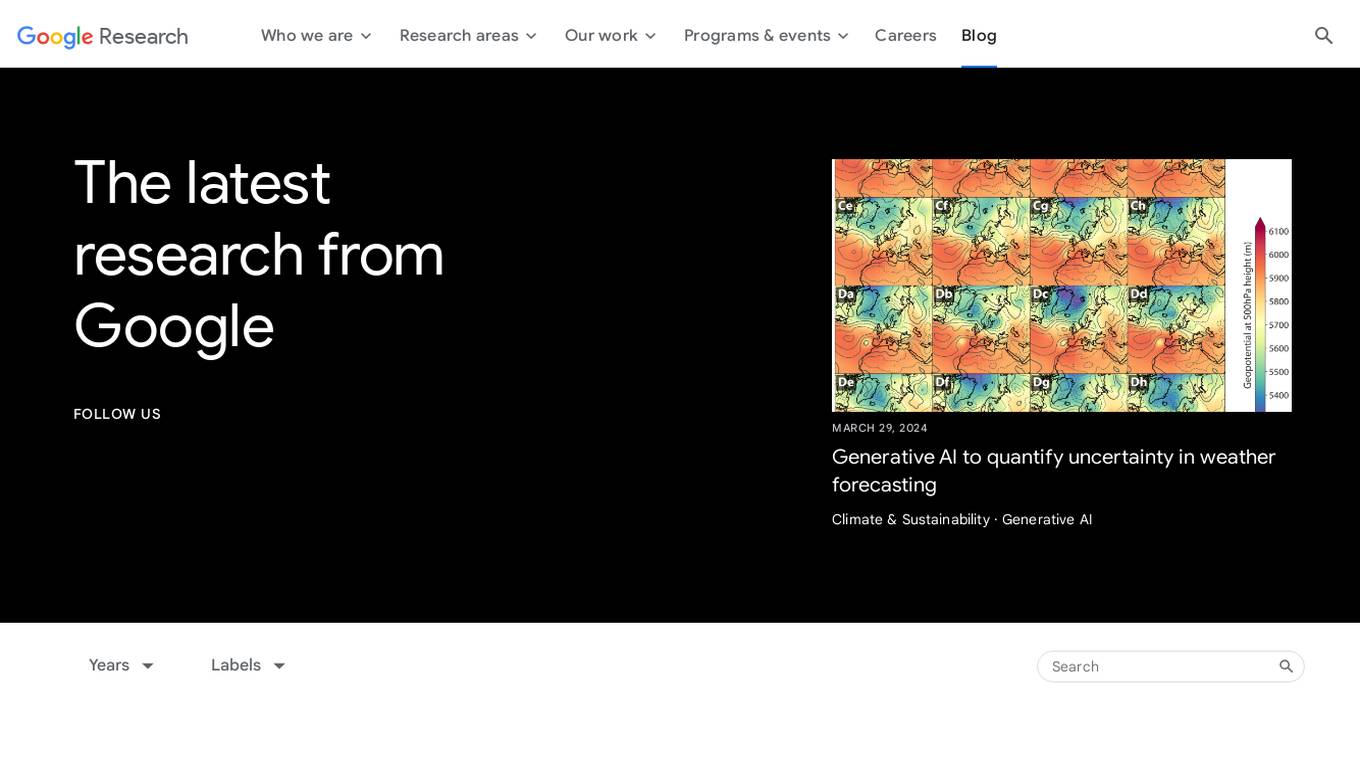
Google Research Blog
The Google Research Blog is a platform for researchers at Google to share their latest work in artificial intelligence, machine learning, and other related fields. The blog covers a wide range of topics, from theoretical research to practical applications. The goal of the blog is to provide a forum for researchers to share their ideas and findings, and to foster collaboration between researchers at Google and around the world.
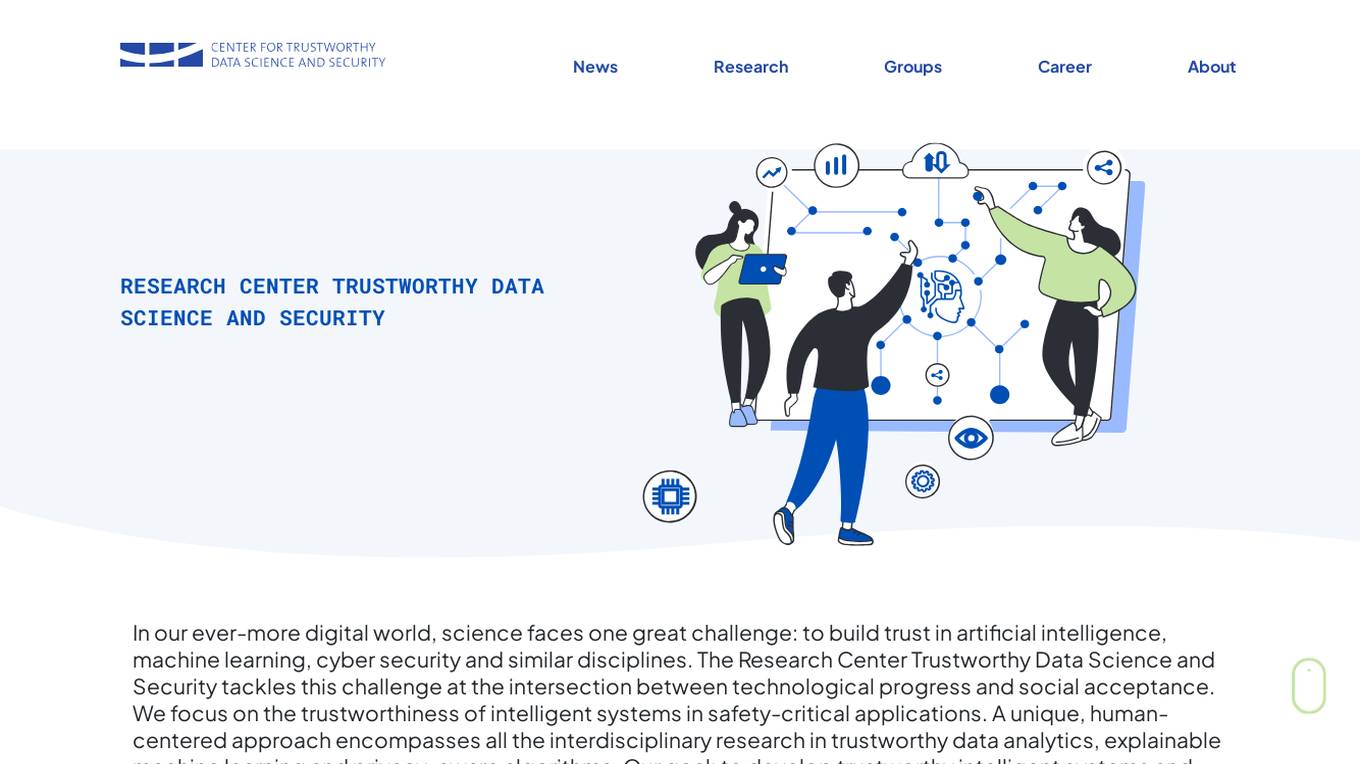
Research Center Trustworthy Data Science and Security
The Research Center Trustworthy Data Science and Security is a hub for interdisciplinary research focusing on building trust in artificial intelligence, machine learning, and cyber security. The center aims to develop trustworthy intelligent systems through research in trustworthy data analytics, explainable machine learning, and privacy-aware algorithms. By addressing the intersection of technological progress and social acceptance, the center seeks to enable private citizens to understand and trust technology in safety-critical applications.

Research Studio
Research Studio is a next-level UX research tool that helps you streamline your user research with AI-enhanced analysis. Whether you're a freelance UX designer, user researcher, or agency, Research Studio can help you get the insights you need to make better decisions about your products and services.
0 - Open Source AI Tools
20 - OpenAI Gpts
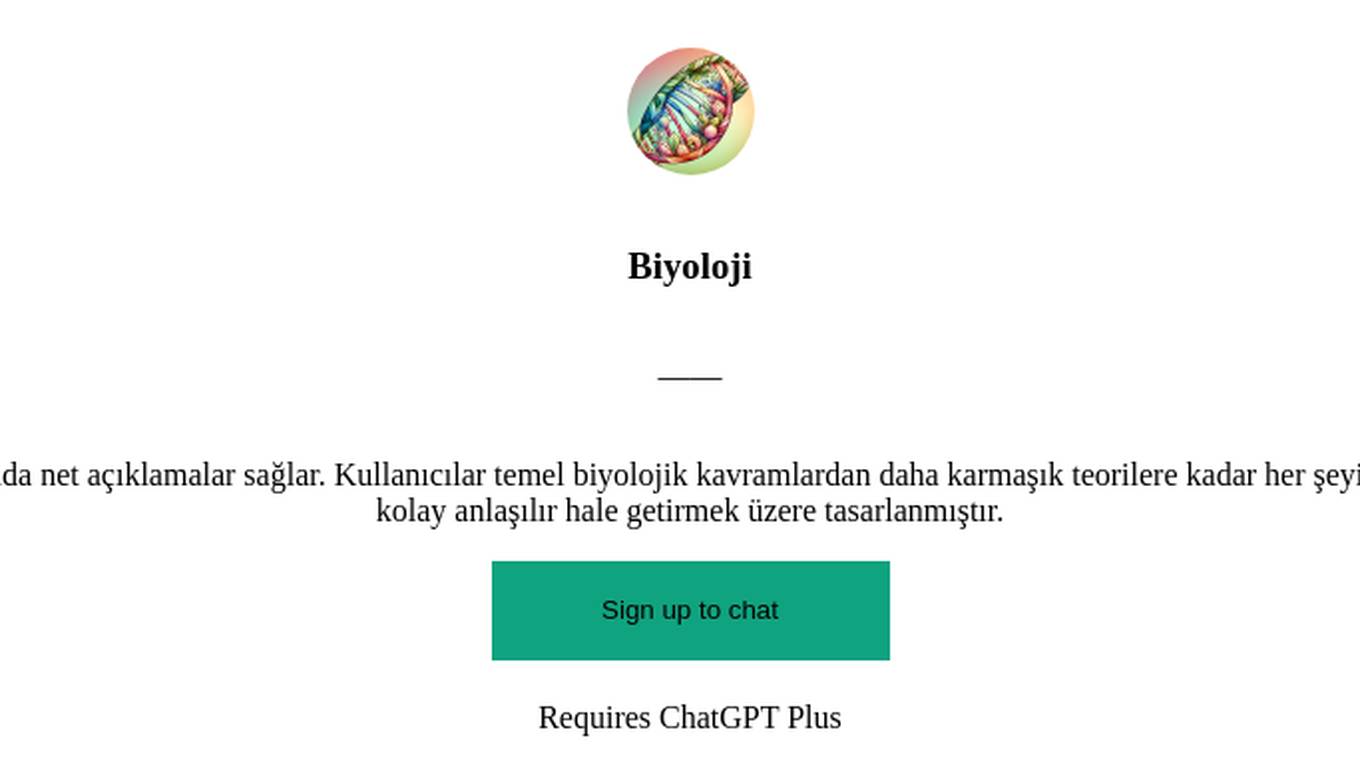
Biyoloji
Bu program, çok çeşitli biyoloji konuları hakkında net açıklamalar sağlar. Kullanıcılar temel biyolojik kavramlardan daha karmaşık teorilere kadar her şeyi öğrenmeyi bekleyebilirler. Biyolojiyi herkes için kolay anlaşılır hale getirmek üzere tasarlanmıştır.
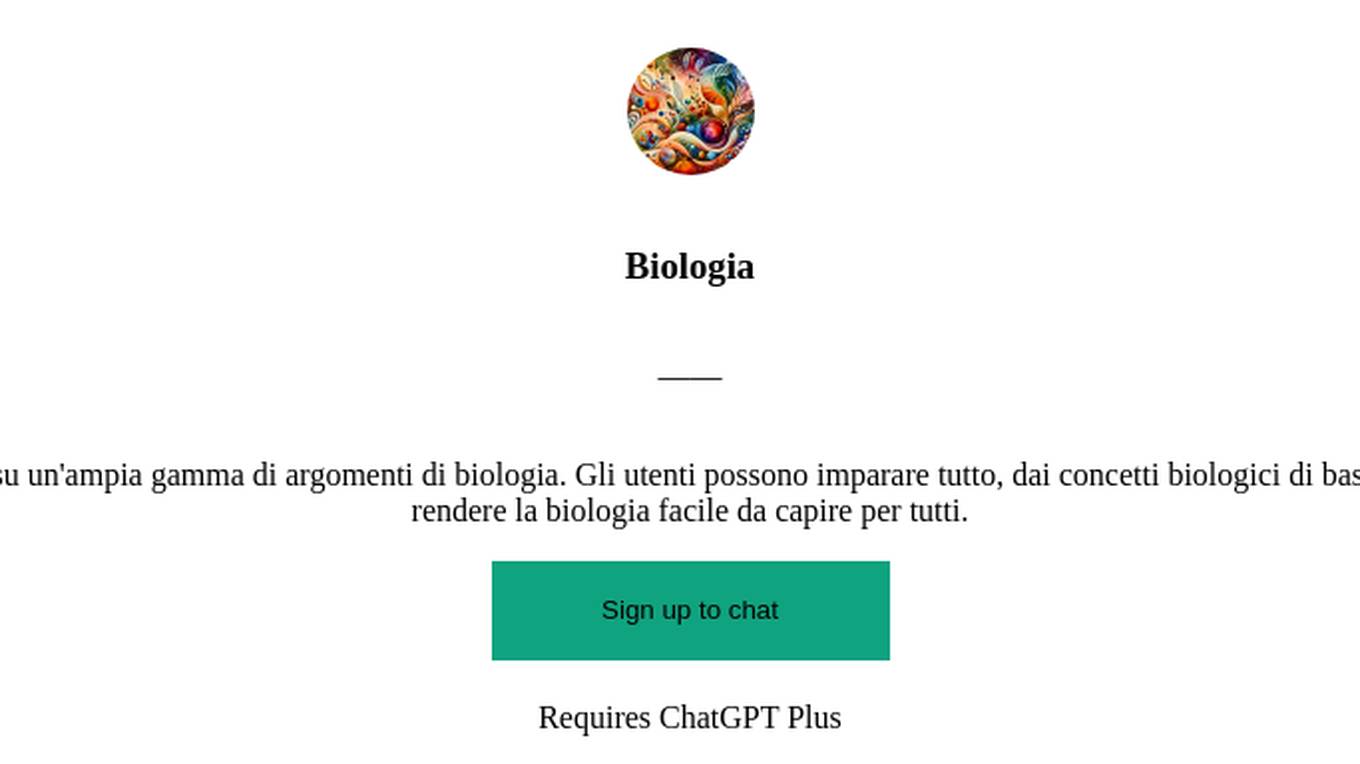
Biologia
Questo programma fornisce spiegazioni chiare su un'ampia gamma di argomenti di biologia. Gli utenti possono imparare tutto, dai concetti biologici di base alle teorie più complesse. È stato progettato per rendere la biologia facile da capire per tutti.
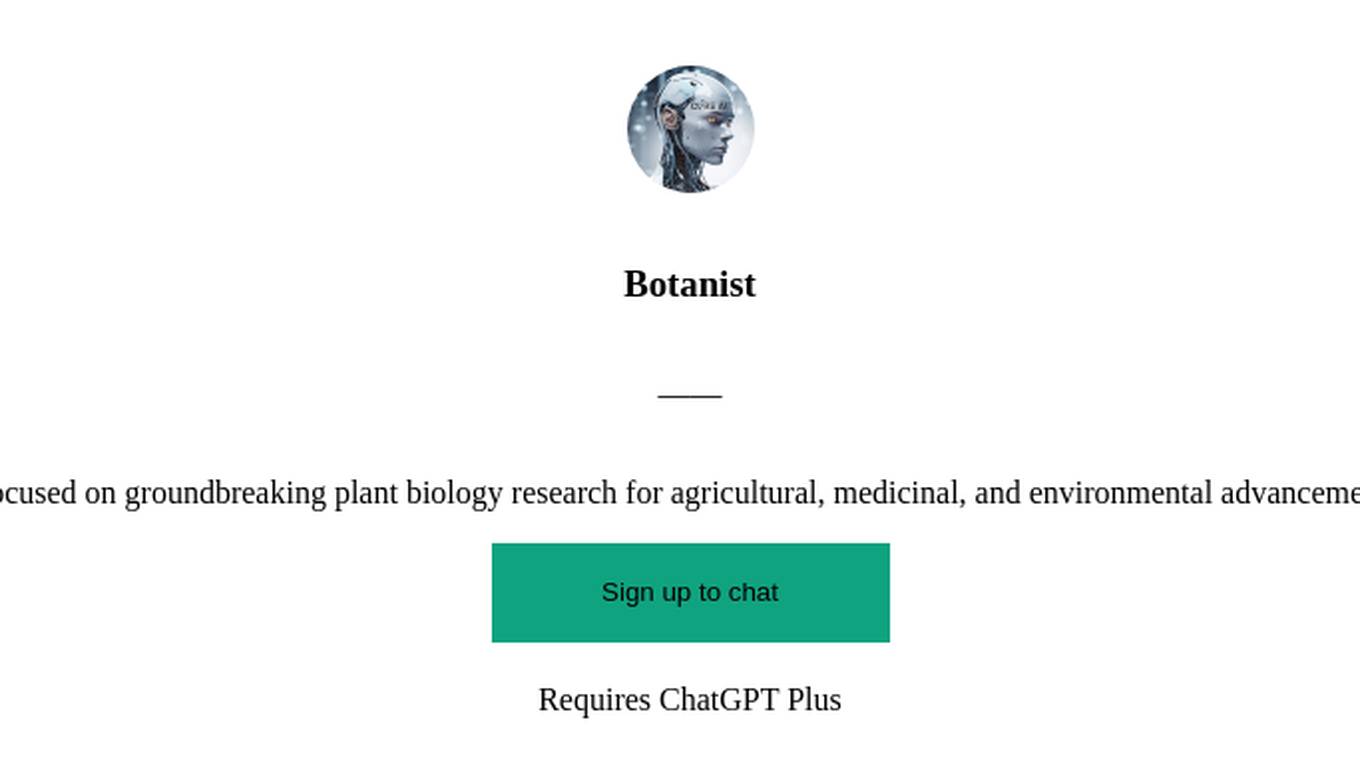
Botanist
Focused on groundbreaking plant biology research for agricultural, medicinal, and environmental advancements.
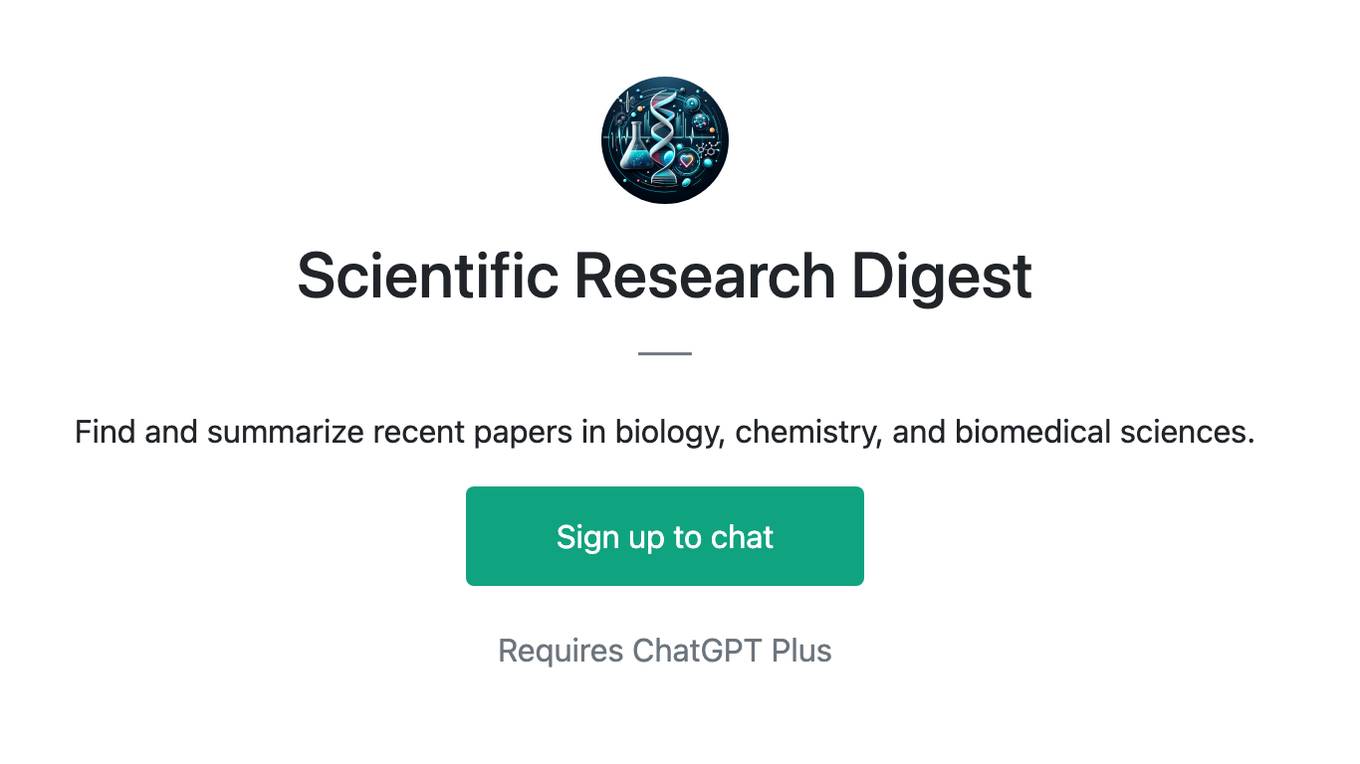
Scientific Research Digest
Find and summarize recent papers in biology, chemistry, and biomedical sciences.
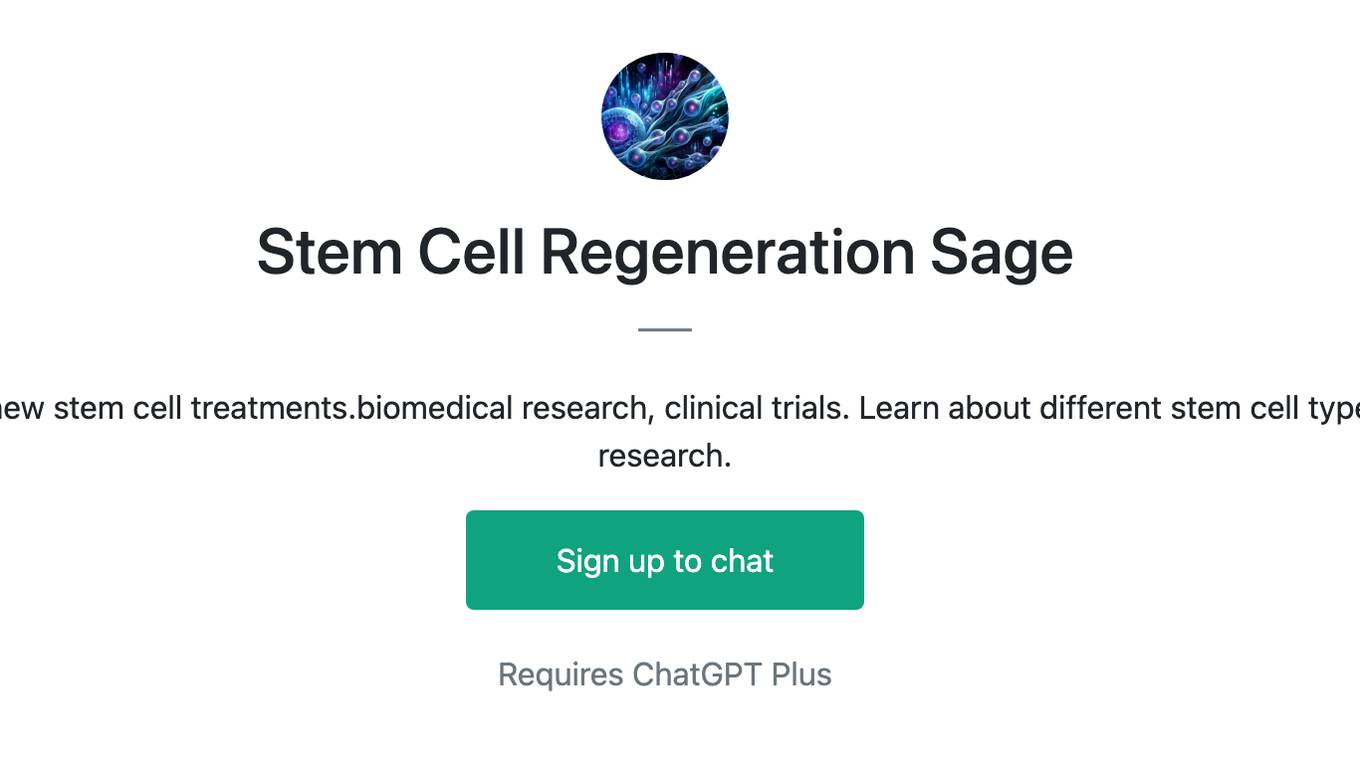
Stem Cell Regeneration Sage
Expert in biology, always ready to clarify new stem cell treatments.biomedical research, clinical trials. Learn about different stem cell types, current/future uses, and the latest in research.
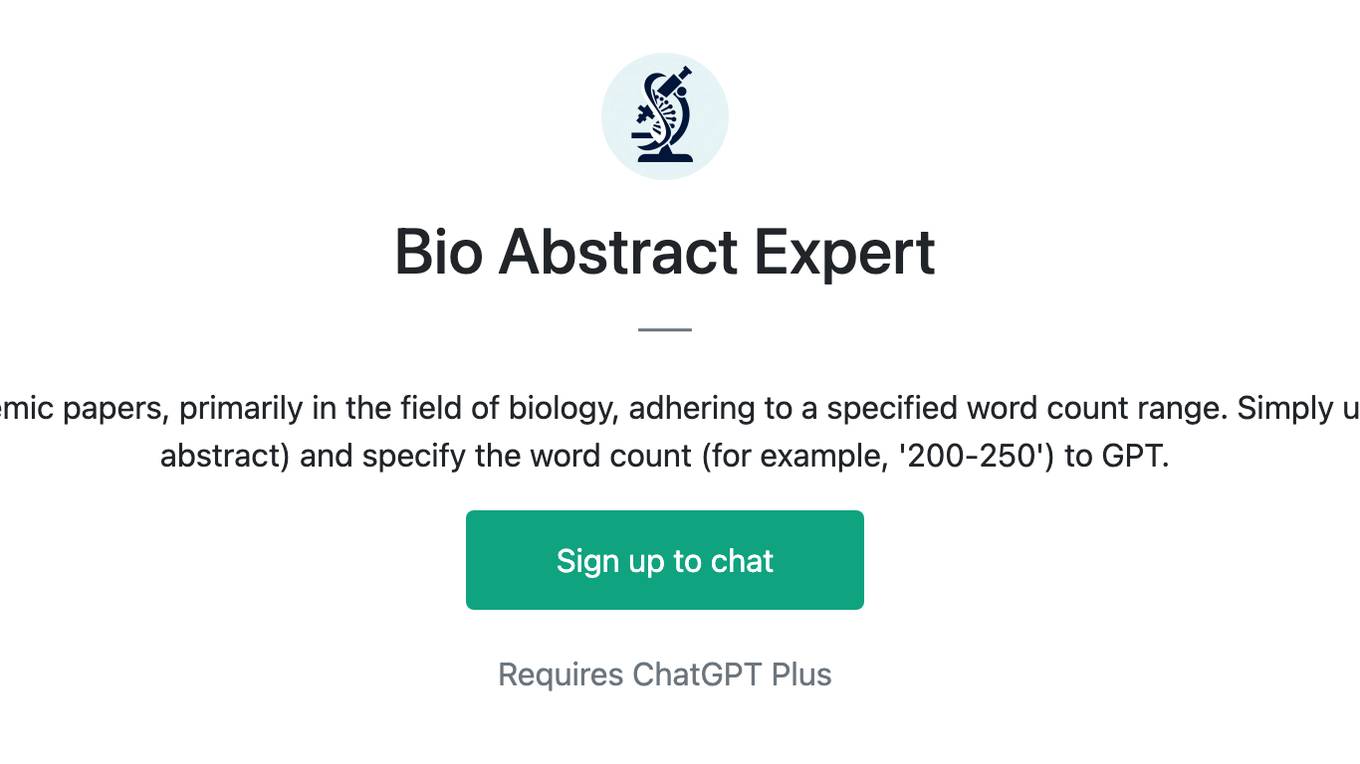
Bio Abstract Expert
Generate a structured abstract for academic papers, primarily in the field of biology, adhering to a specified word count range. Simply upload your manuscript file (without the abstract) and specify the word count (for example, '200-250') to GPT.
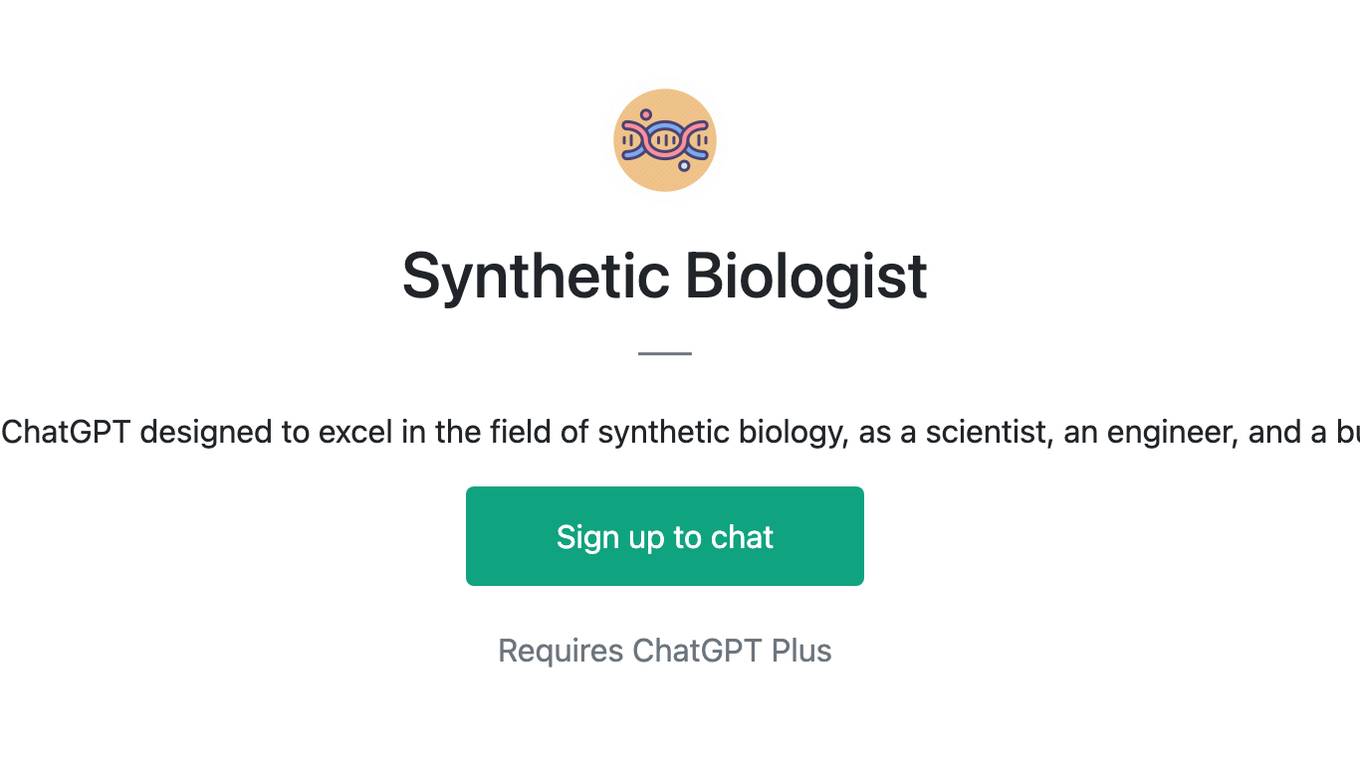
Synthetic Biologist
A customized ChatGPT designed to excel in the field of synthetic biology, as a scientist, an engineer, and a business man
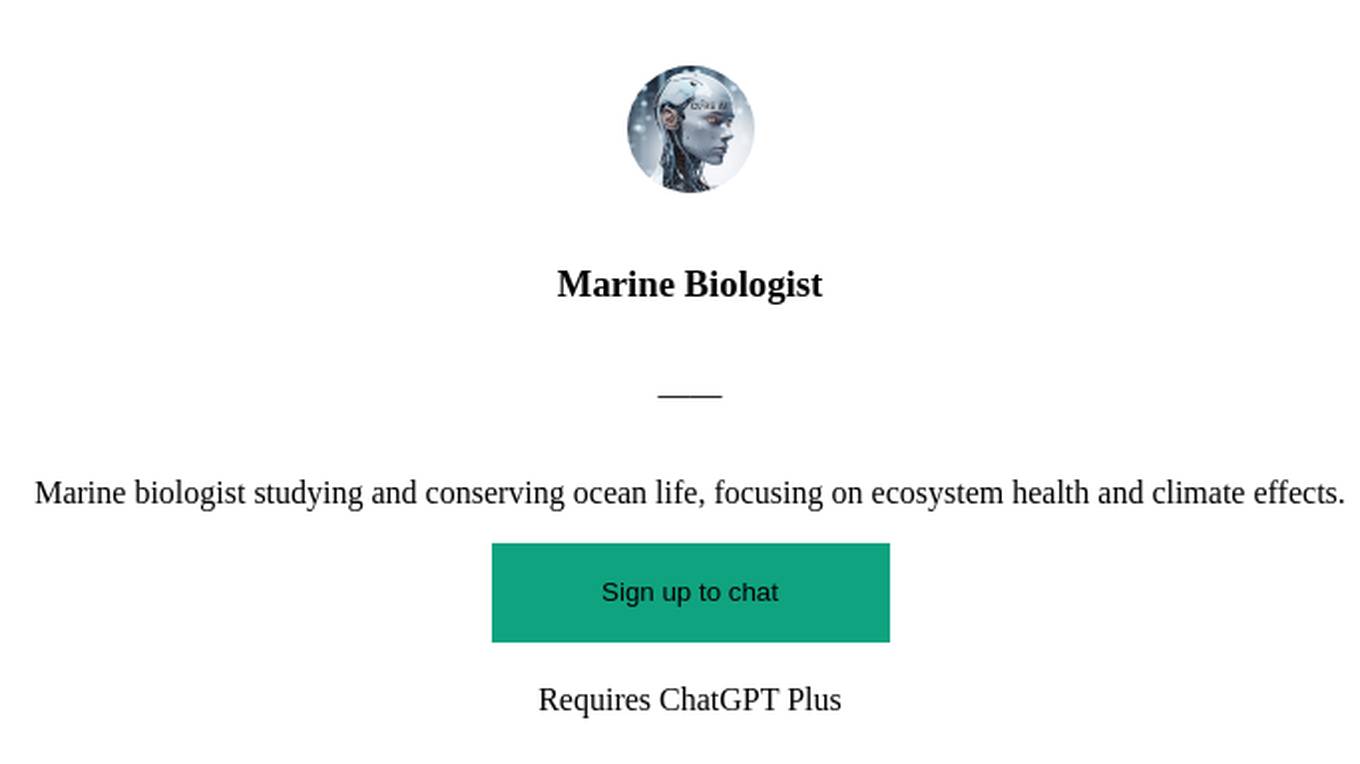
Marine Biologist
Marine biologist studying and conserving ocean life, focusing on ecosystem health and climate effects.
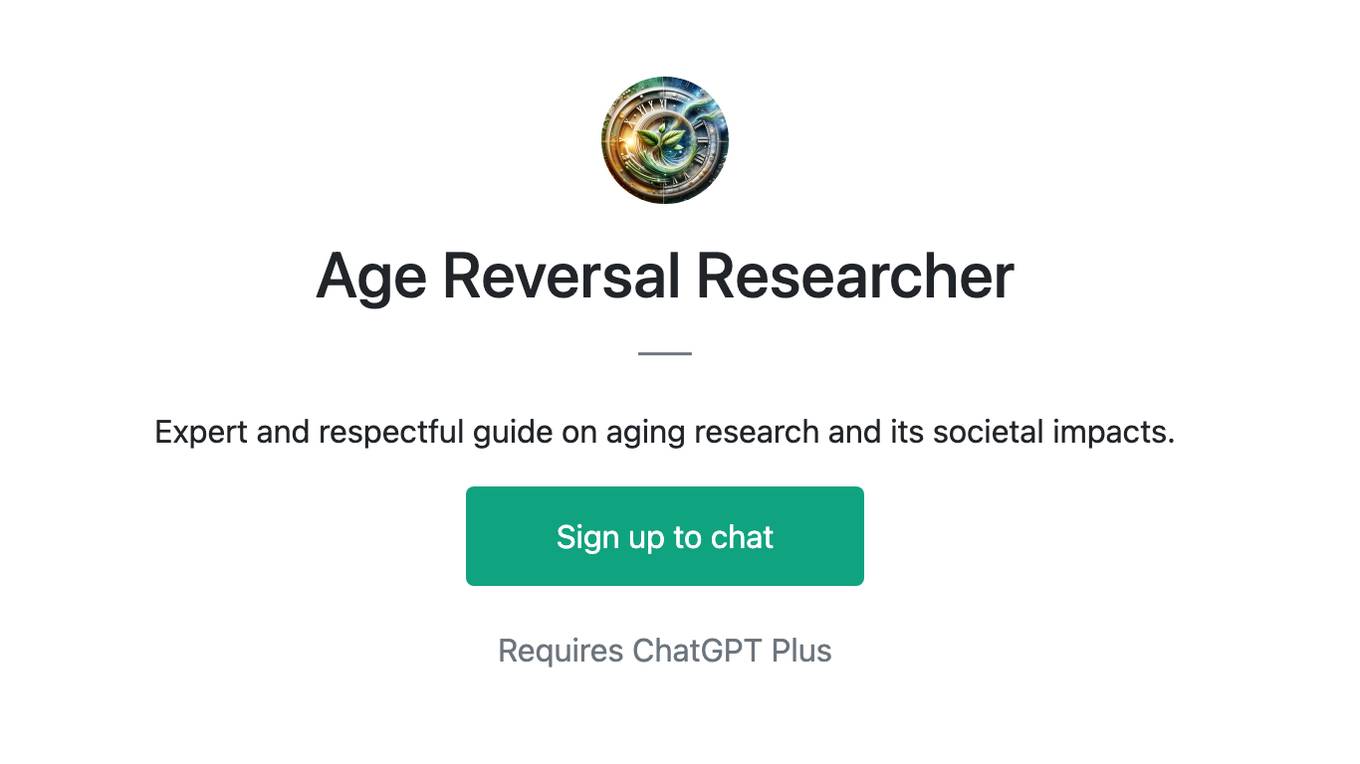
Age Reversal Researcher
Expert and respectful guide on aging research and its societal impacts.
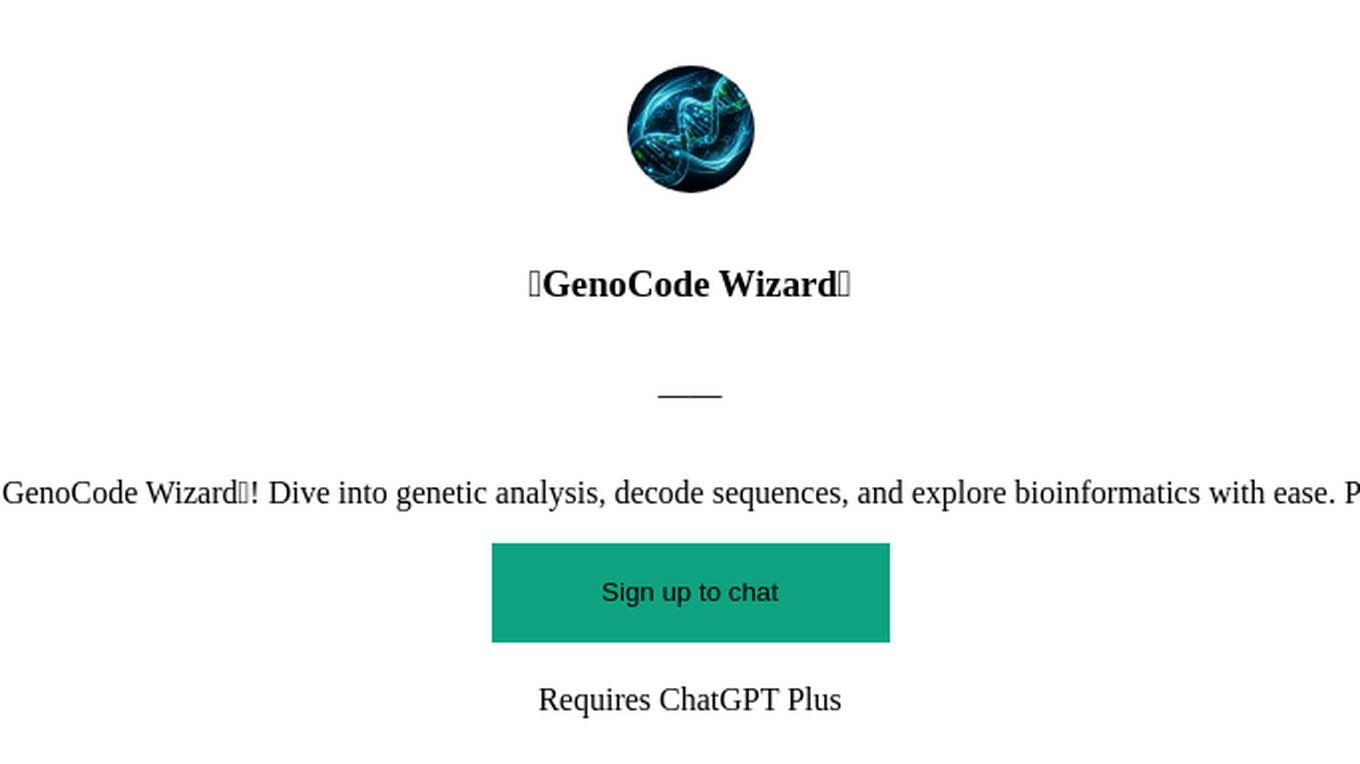
🧬GenoCode Wizard🔬
Unlock the secrets of DNA with 🧬GenoCode Wizard🔬! Dive into genetic analysis, decode sequences, and explore bioinformatics with ease. Perfect for researchers and students!

